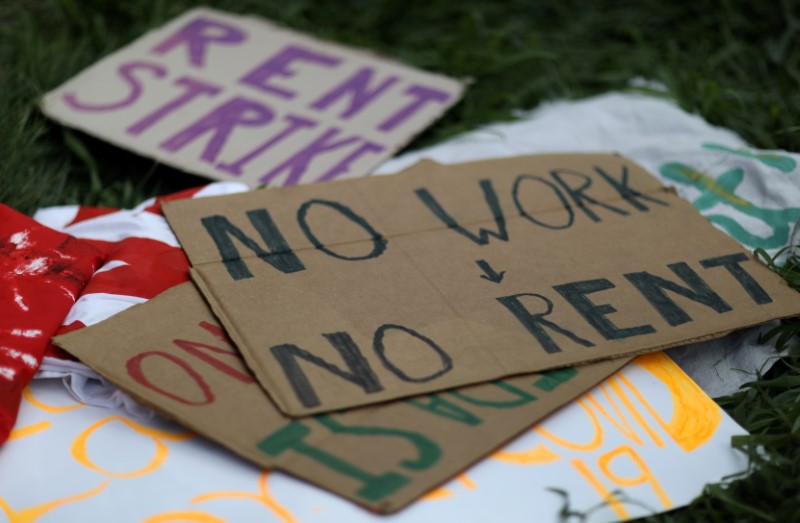By Jan Wolfe and David Shepardson
WASHINGTON (Reuters) -A federal appeals court on Friday rejected a bid by groups representing landlords to halt the latest moratorium on residential evictions imposed by President Joe Biden's administration, setting up a U.S. Supreme Court showdown.
In a written order, the U.S. Court of Appeals for the District of Columbia Circuit denied an emergency request by two chapters of the National Association of Realtors to stop the COVID-19 pandemic-related eviction ban set by the U.S. Centers for Disease Control and Prevention (CDC). The moratorium, implemented after a previous one lapsed at the end of July, is due to expire on Oct. 3.
Realtor groups in Alabama and Georgia were among those challenging the moratorium.
The appellate court's order sets the stage for the Supreme Court to hear arguments over whether the administration overstepped its authority by issuing the moratorium.
Hours after the order issued, the realtor groups asked the Supreme Court to issue an emergency order lifting the moratorium, saying in a court filing that "Congress never gave the CDC the staggering amount of power it claims."
White House Press Secretary Jen Psaki said in a statement that the Biden administration is "pleased that the circuit court joined the district court in leaving the moratorium in place that is keeping hard-pressed Americans in their homes in areas of substantial or high COVID-19 spread."
Under heavy political pressure from Biden's fellow Democrats, his administration reversed course on Aug. 3 and issued a slightly narrower eviction moratorium three days after the prior one expired. Biden initially had said that congressional action was needed to renew the moratorium, but his administration reversed course.

The current moratorium covers nearly 92% of U.S. counties, but that could change based on COVID-19 conditions.
The CDC first issued a moratorium in September 2020 after a prior one approved by Congress expired, with agency officials saying the policy was needed to combat the spread of COVID-19 and prevent homelessness during the pandemic.